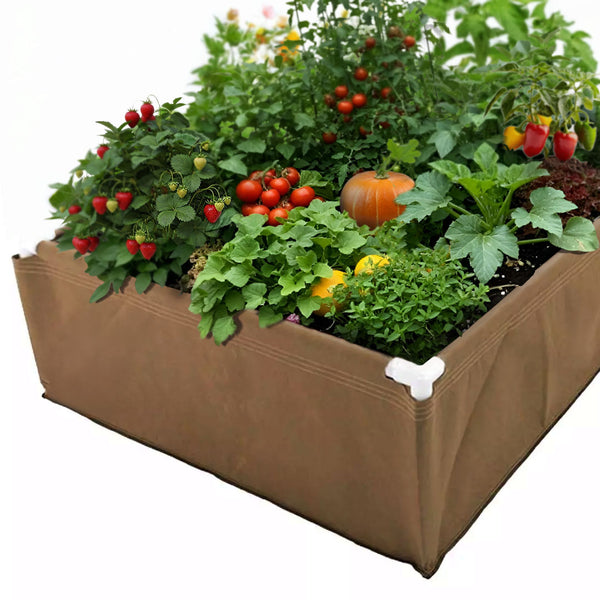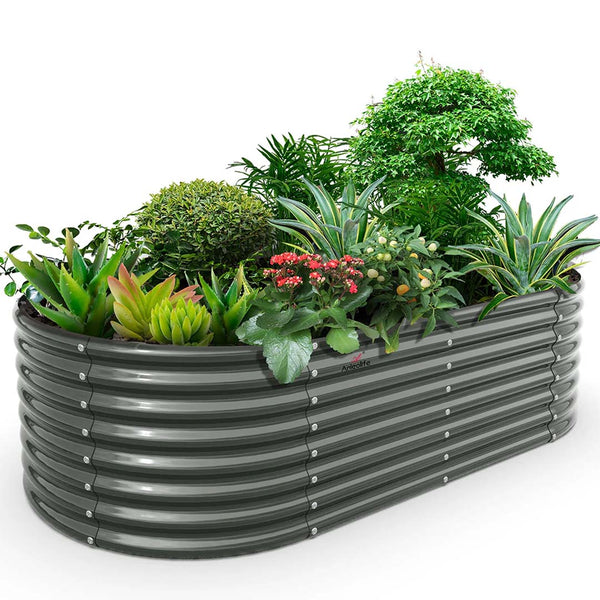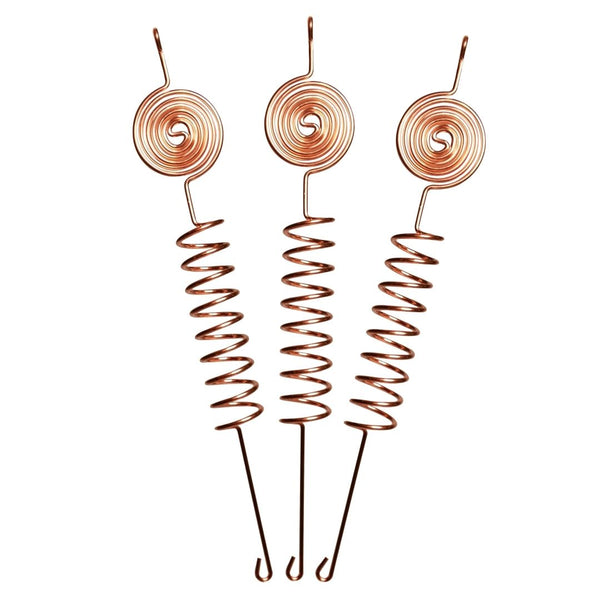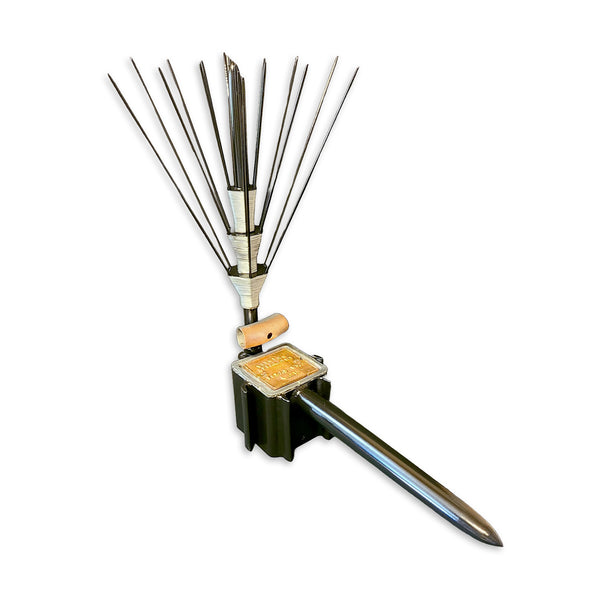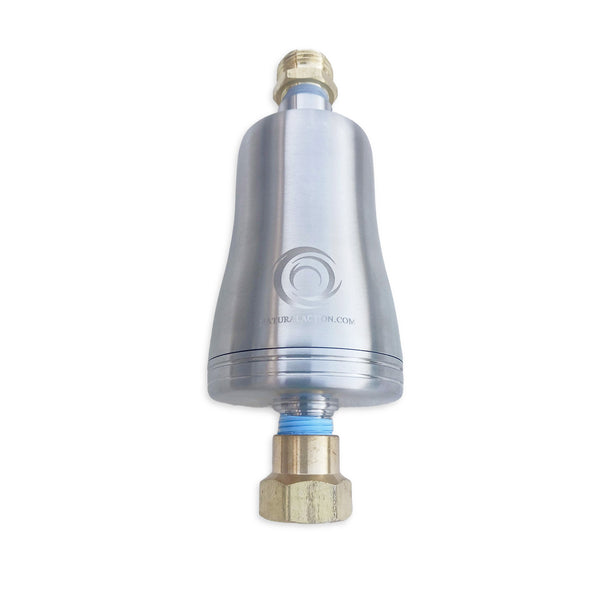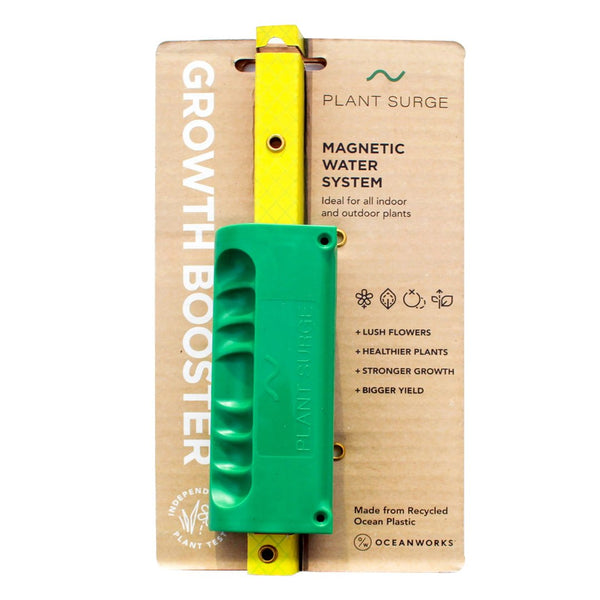The Electroculture Plant Stakes That Are Making Plants Grow Twice As Fast

Understanding Electroculture Gardening
Electroculture gardening is like giving your plants a little electric pep talk. By diving into its history and principles, we can see how this electrifying method can jazz up our gardens.
History of Electroculture
Electroculture's story starts way back in the 1700s when folks noticed trees were having a growth spurt under the aurora borealis, thanks to its electric vibes. Fast forward to 1868, Finnish geophysicist Karl Lemström saw plants near the aurora borealis growing like they were on steroids, sparking experiments in Germany. Electrified strawberries, beans, and barley were the stars of the show, growing bigger and ripening faster.
In the 1920s, French inventor Justin Christofleau penned "Electroculture," a book that took gardening to new heights with atmospheric electricity. He cooked up a gadget with vibrating wires to snag atmospheric electricity and give crops a growth boost. This set the stage for today's electroculture practices (The Spruce).
The late 1800s to early 1900s was a hotbed of electroculture research, fueled by the idea that electrical storms were like plant growth steroids. Lightning turns atmospheric nitrogen into nitrate, which dissolves in raindrops and feeds the soil, explaining why plants seem to party after a storm (Garden Professors). But then World War II came along, and chemical fertilizers stole the spotlight. Now, with folks looking for natural ways to boost plant health, electroculture is making a comeback.
Principles of Electroculture
Electroculture is all about giving plants a little electric nudge to get their growth hormones dancing. This can lead to faster growth, bigger harvests, and more blooms. Plus, it helps nutrients and water zip around the plant, making it healthier overall.
Healthier plants mean less hassle with pests and diseases, making garden life a breeze. Electroculture might even give soil fertility a boost over time, creating a garden that's both sustainable and thriving. By using electroculture plant stakes, we can tap into these perks and grow gardens that need fewer chemical helpers.
As we dig into electroculture gardening, we can see how it fits with our dreams of sustainable and productive gardening. For more tips on getting started, check out our articles on electroculture gardening and electroculture antennas.
Benefits of Electroculture Antennas
Electroculture gardening is catching on with green thumbs everywhere, and it's not just a passing fad. Using electroculture plant stakes can really amp up your garden game, especially when it comes to making plants grow like crazy and soaking up nutrients like a sponge. Let's break down why this is a game-changer.
Increased Plant Growth
One of the coolest perks of using electroculture antennas is how they supercharge plant growth. Studies show that zapping plants with a bit of electricity can kickstart the hormones that make them stretch and grow. This means your plants grow faster and give you more bang for your buck. For example, cabbage can bulk up by a whopping 75% when its seeds get a little electric jolt. Plus, natural electricity from wind and rain can speed up pea seed sprouting by over 25% and boost their growth by nearly 18%.
| Crop Type | Growth Increase (%) |
|---|---|
| Cabbage | 75 |
| Peas (germination) | 25 |
| Peas (growth) | 18 |
| Oats and Barley | 22 |
Fans of electroculture say that fruits and veggies, especially leafy greens, root veggies, and sweet fruits, grow quicker, healthier, and taste better with these techniques (The Spruce). So, if you're looking to get the most out of your garden, electroculture might just be your new best friend.
Enhanced Nutrient Uptake
Besides making plants grow faster, electroculture antennas help them suck up nutrients more efficiently. A little electric nudge helps nutrients and water move around inside the plant, making them healthier overall. Healthier plants can fend off pests and diseases better and can even help improve soil quality over time.
By using electroculture, we can grow stronger plants with deep roots that are great at grabbing the nutrients they need from the soil. This is a big win for gardeners dealing with crummy soil or those wanting to cut back on chemical fertilizers.
| Benefit | Description |
|---|---|
| Improved Nutrient Movement | Better flow of nutrients and water within the plant |
| Increased Resilience | Healthier plants can better resist pests and diseases |
| Soil Fertility | Can lead to better soil health over time |
Adding electroculture plant stakes to our gardening routine can make our gardens more sustainable and productive. If you're curious to learn more about this nifty method, check out our articles on electroculture gardening and does electroculture work.
Electroculture Antennas in Action
Electroculture gardening is catching on with folks who love getting their hands dirty, and the results are pretty impressive. Let's dive into some stories and handy tips for using electroculture plant stakes.
Testimonials and Results
People are buzzing about their experiences with electroculture plant stakes. Folks are thrilled with how well these stakes work and how sturdy they are. Gardeners have seen their peppers, tomatoes, and cucumbers flourish, often noticing changes in just a week or so.
| Plant Type | Reported Results | Timeframe |
|---|---|---|
| Peppers | Better growth and health | 1 week - 10 days |
| Tomatoes | Stronger plants, more produce | 1 week - 10 days |
| Cucumbers | Thriving plants | 1 week - 10 days |
| Strawberries | Boosted growth | 1 week - 10 days |
Fans of electroculture say fruits and veggies grow quicker, healthier, and taste better with these stakes. Leafy greens, root veggies, and sweet fruits seem to benefit the most (The Spruce).
The idea is that a little zap from the stakes gets plants to produce hormones that help them grow bigger and faster. This means more produce, better nutrient flow, and overall healthier plants. Healthier plants can fend off pests and diseases better, and electroculture might even boost soil health over time.
Practical Application Tips
To get the most out of electroculture plant stakes, here are some tips:
Placement: Stick those stakes near the roots for the best nutrient uptake.
Soil Prep: Make sure your soil is airy and packed with organic goodies. Good soil makes the stakes work even better.
Watering: Keep the soil moist. Electroculture helps with water retention, but plants still need a drink.
Watch Growth: Keep tabs on how your plants are doing. Move stakes around or add more if needed.
Mix Methods: Pair electroculture with other organic tricks like composting and crop rotation for even better results.
Try Stuff Out: Different plants might react differently. Test out various types to see what works best.
By following these tips, we can tap into the full power of electroculture gardening and enjoy stronger, healthier plants. For more info on getting started, check out our guide on electroculture gardening.








